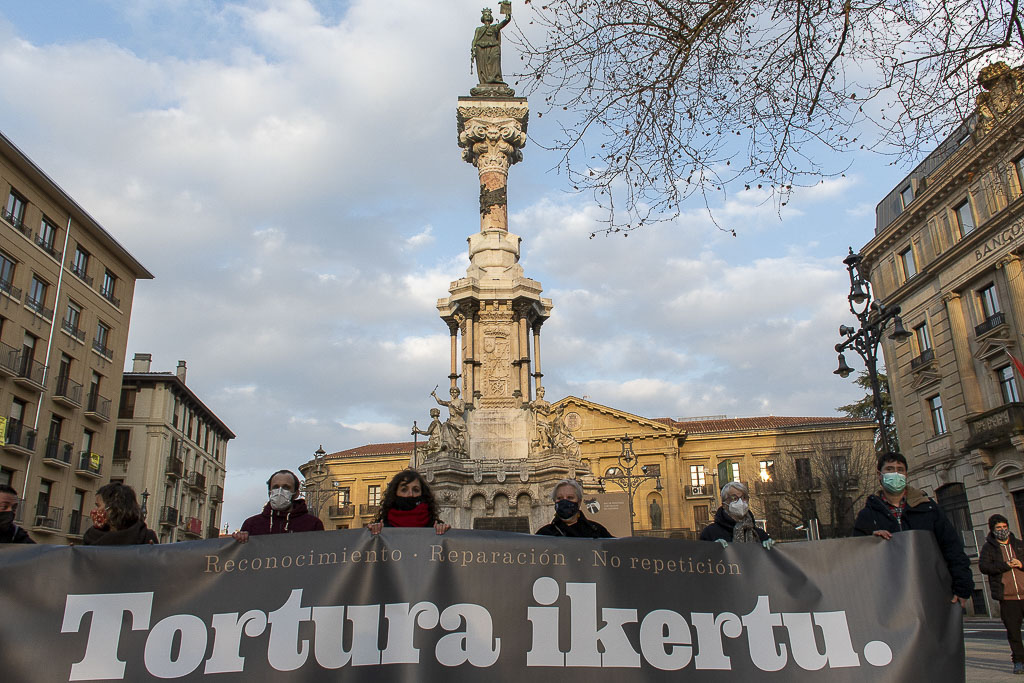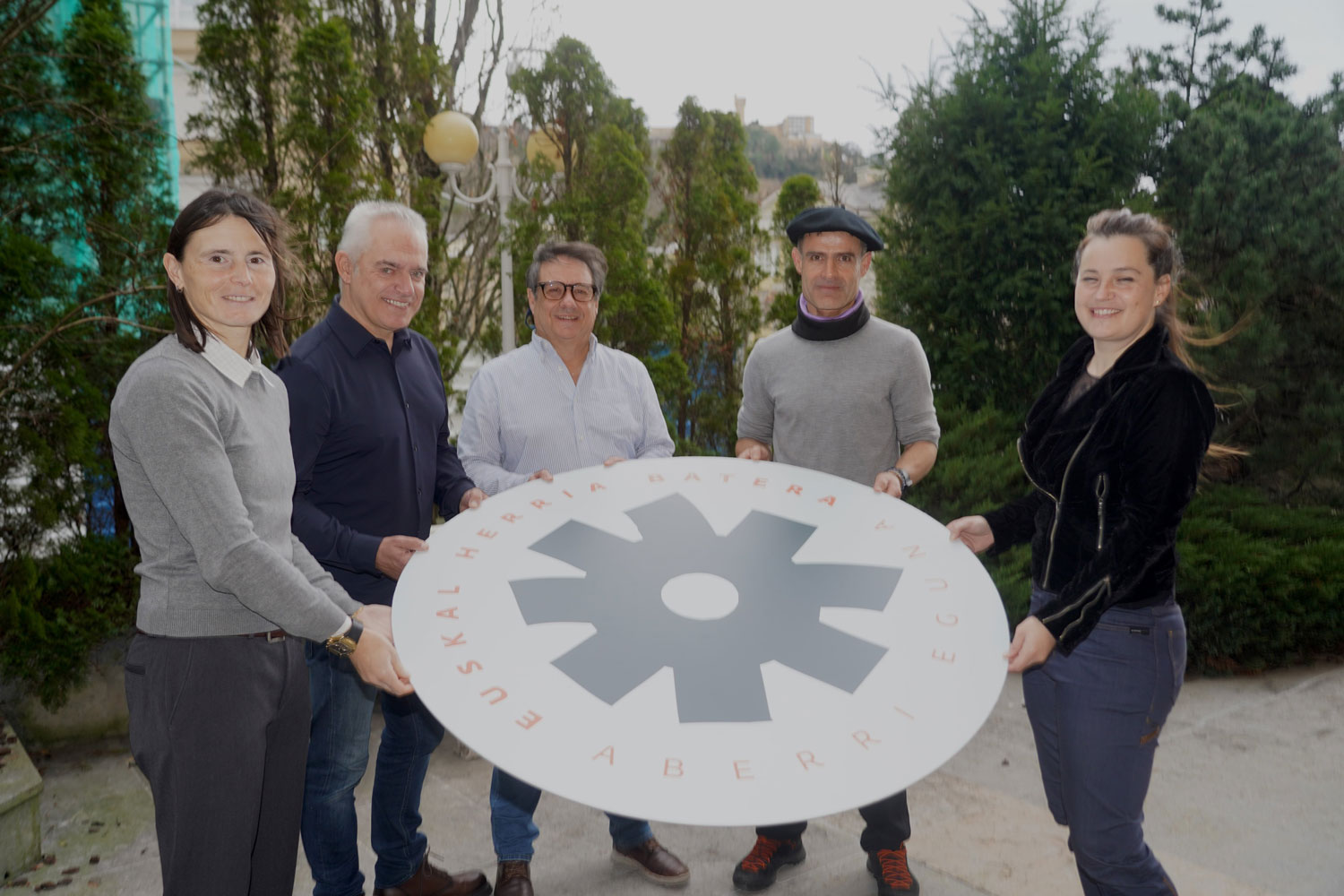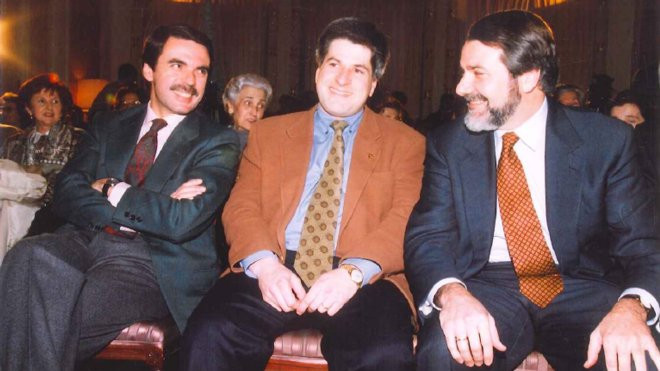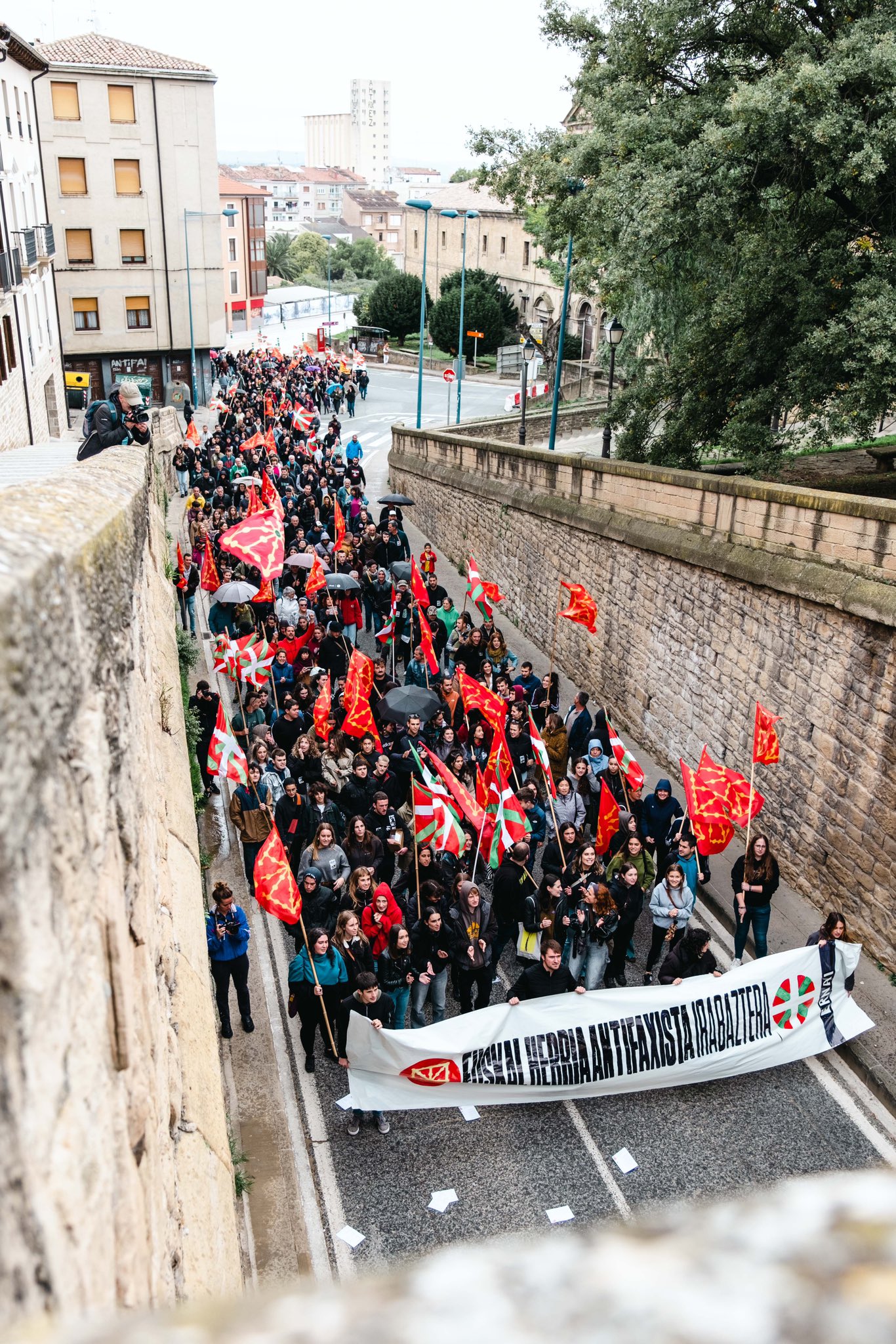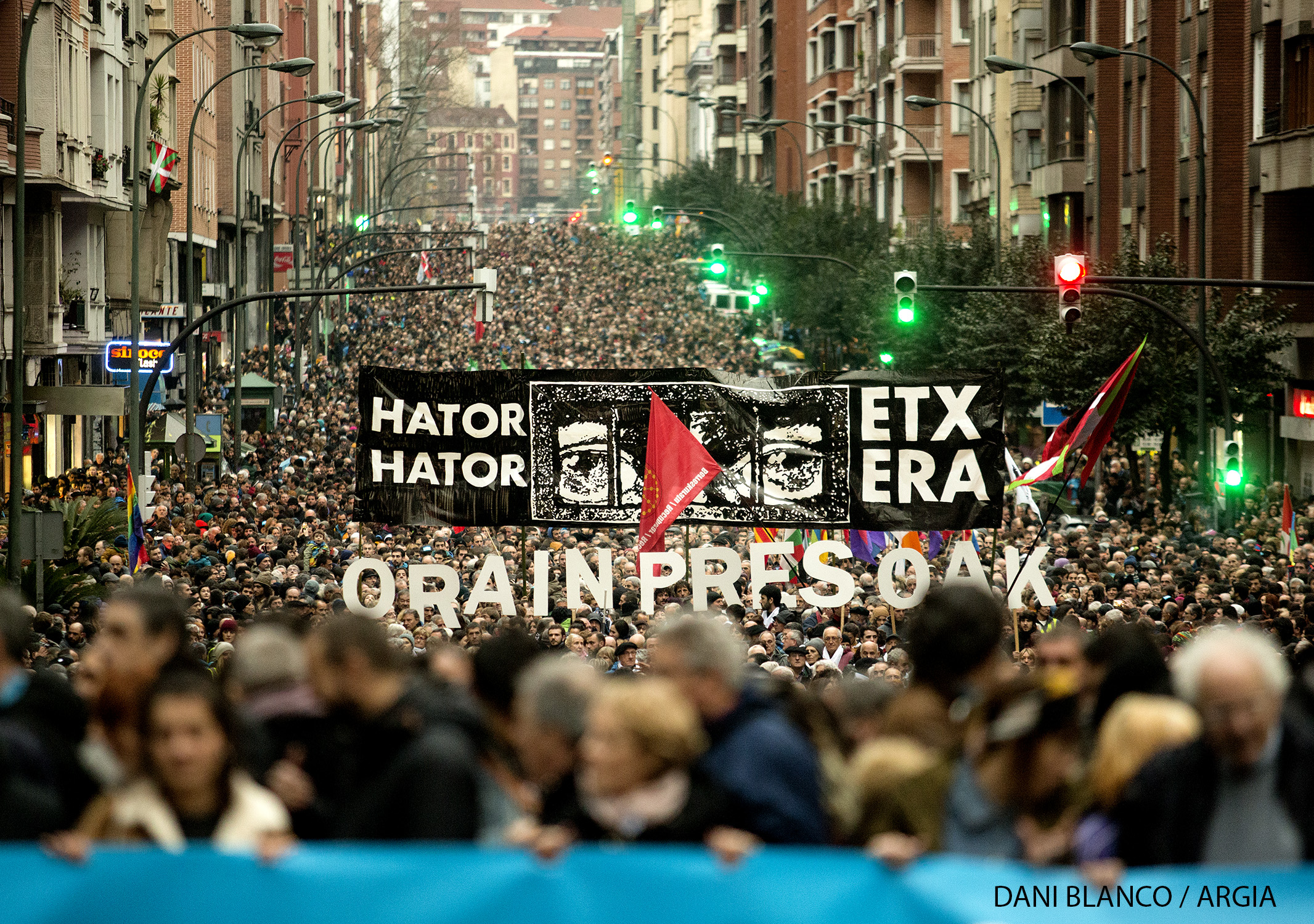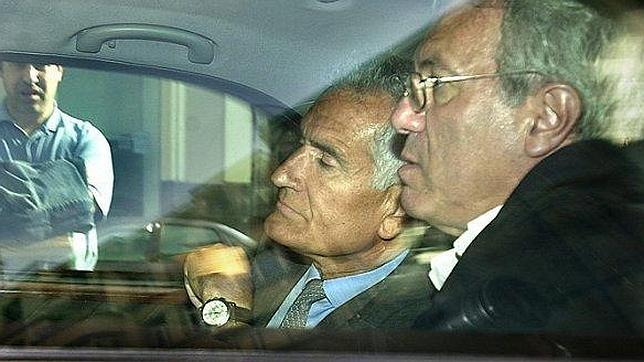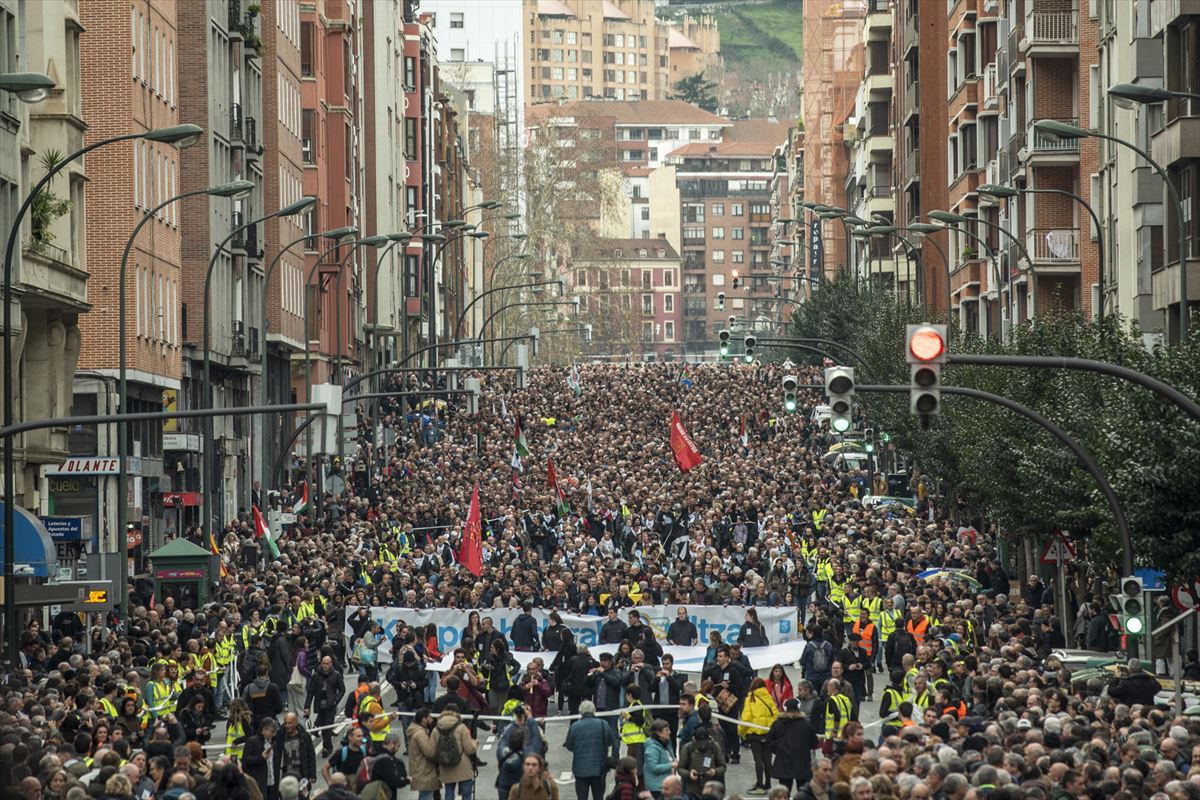"ETA's news reaches the world from the perspective of Madrid"
- Journalist Imanol Murua Uria (Zarautz, 1966) has published the book Dakar, entitled 'Traed armas'. He has described, in a very clear and legible manner, the end of ETA’s armed struggle in France. He has conducted over forty interviews and used internal documents and external references of the institutions.
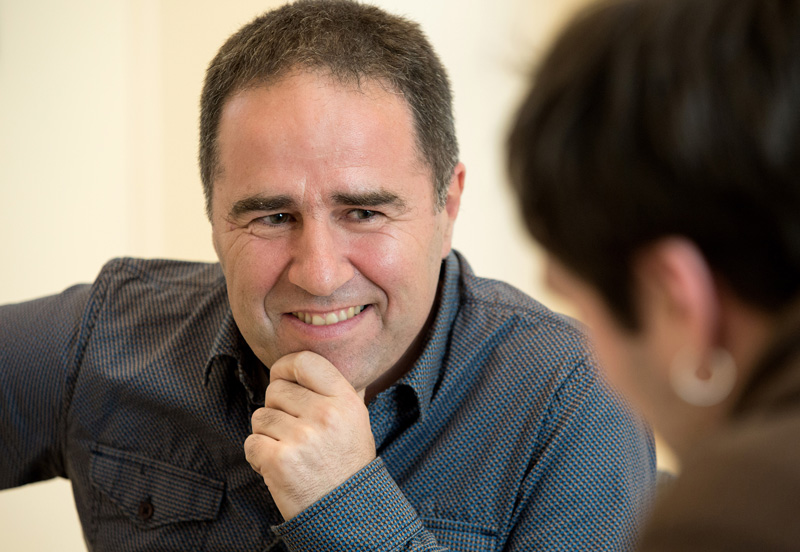
In 2007, ETA decided that the Abertzale left should prepare for a long cycle of struggle in the Basque Country. How important is the fact that Batasuna has faced ETA from Batasuna?
The end of the Loiola peace process with the Barajas attack in the midst of a truce of ETA was, in some way, the last drop, as Otegi said in the book The Age of Lights. It was decisive that at a certain point those who were in that opinion said “enough”, so far we have arrived. There were not only people in the direction of the Union. That was what many people thought already inside.
What are the keys to ending the debate without division?
“Armed struggle has to end, but we have to end all together,” many thought. This desire for unanimity has delayed the decision so much. The end of Lizarra-Garazi is also a milestone, some began to see the armed struggle with other eyes. In the 2007-2011 process, the lack of fragmentation was one of the priorities, but it was not the only one. They were more daring than in previous years and there was no division.
“Many thought the armed struggle was going to end, but that everyone had to end together.”
To what extent did the risk of division run?
In the research I have not been able to measure this accurately. I have collected testimonies and some internal documents talk about the risk of division. Those who were at it have told me that they at least saw that the risk of division was real in the spring of 2009 and 2010. At that time there are the arrests of Bateragune, the debates made people by people, Zutik Euskal Herria... the fact that the latter was presented by consensus ended the risk.
There were also discussions in ETA...
The internal documents state that ETA’s management suffered a severe crisis at the end of 2007 and in 2008. This irremediable situation was not entirely related to the debate on the Abertzale left. The military-political strategy was not over. Discrepancies within management were related to issues of effectiveness and functioning. In May 2008, this internal crisis was somewhat over, as part of ETA’s management, including López Peña, was arrested in Bordeaux.
In the Endgame For ETA you are using as a source in the book there are many details. Who is the author Theresa Whitfield, who has such good sources?
He has collaborated with the Henri Dunant Centre, which once served as an advisor. He's currently at a university in New York. They published a monograph with different points of view about Jakin's conflict, in which I wrote about the struggle of storytelling in the world of academia. Looking at what's out there in English, I underlined this book by Whitfield. He has not had any special echo in Euskal Herria, but the book is of great importance, in English and with an academic touch, as it addresses the end of ETA’s armed struggle from another point of view, placing a great focus on international agents. The story makes him contextualized in a political conflict.
“In the PNV you do not see a disagreement on the current line, you do not see yourself as a sovereign”
Most of those who publish about ETA in English and Spanish investigate as a purely terrorist phenomenon, and if you look at the bibliographies, that is what predominates. The news from ETA reaches the world through the perspective of Madrid.
In the book Hartu Armak we read for the first time that ETA made a proposal to IK to join forces. They did not receive a reply.
That's right. ETA made a proposal to IK to join and in a document, ETA says it never answered. IK was not in a position to respond. IK never reported its end. Filipe Bidart told me that not communicating it publicly was a mistake, because it could have a symbolic force. It has, however, been noted that the time has passed for the grudges between the two institutions. I have also contrasted with words that were like this.
 Urkullu said: “The PNV made an unfortunate exercise of politics in 1998-1999, breaking bridges with the PSOE and the PP with the argument of the need to make a policy of accumulation of forces between abertzales”. It seems like a prediction.
Urkullu said: “The PNV made an unfortunate exercise of politics in 1998-1999, breaking bridges with the PSOE and the PP with the argument of the need to make a policy of accumulation of forces between abertzales”. It seems like a prediction.
In his view, it was a mistake to put Lizarra Garazi in the matter of relations between the Basque nationalists. It was picked up by journalist María Antonia Iglesias. The PNV did not experience with particular enthusiasm the Lizarra-Garazi process, but Urkullu was not in the current responsibilities. And of Ibarretxe's wager, in other keys, but the same. Urkullu has reached the present conformist position from the Abertzale point of view through critical assessments of these experiences. Bilaterality with the Spanish government for the development of self-government, foreign nation... It seems that he is betting on continuing with this status where we are.
How do you see the forces inside the PNV?
After the dispute between Egibar and Imaz, the second was in charge of taking the reins of the race. The party had split in two and risked dividing, but Imaz was clear where he wanted to go. When Urkullu arrived, I do not know how he managed to be in such insignificant nationalist positions. In the historical pendulum of the PNV, Urkullu and Ortuzar are there. What's strange to me is that I don't see the other side of the pendulum. There is no disagreement in the PNV about this, and there is no such thing as a sovereign.
Four years in Madrid with the absolute majority of the PP, blocking everything that has to do with the Basque conflict since the state, Urkullu has responded with contempt when he has gone to make proposals to Rajoy with total kindness... However, they want to continue in that bilateral relationship. I'm a little surprised.
“The PP or the Government of Spain has been interested in giving here the image that follows the conflict, which obstructs the path to political processes of another essence”
What you picked up from the book is that at the time of Zapatero the Spanish state committed to ETA a few steps ago, explained Rufi Etxeberria. Why did pp decide to zero the counter?
Because I had no need. The pp or the government of Spain has been interested in giving here the image that follows the conflict. It hinders the way to political processes of another essence. If the issue of prisoners had been addressed and included in the commitments as liberating sick prisoners, go to Norway to talk to ETA to gradually agree on the rapprochement and release of prisoners... the Abertzale left or the independence movement could have been strengthened. The PP could make that calculation easily ...
... but Zapatero too, right?
Yes, but Zapatero had the opportunity to put an end to ETA’s armed struggle within the framework of his legislature. Seeing that at that time she was able to keep her secret, she decided to enter. Rajoy, on the other hand, was taken for granted. The prisoner, the disarmament and a thousand other stories he has to deal with from a state point of view. But from a partisan and short-term point of view, they've done that interpretation. The problem of Catalonia is there, but at least that of Euskal Herria is not, they have it more stuck.

In October 2011, Brian Currin told us at ARGIA: “I am convinced that PP will have a constructive attitude when it comes to government.” This would know something, and he didn't get it right.
Although Zapatero had very little time, they really hoped that some of the measures contained in the commitments would be taken. For example, they were going to release the sick prisoners, and they did nothing. It was agreed that the Zapatero government would pass on the commitments to the next. Rajoy said it was good news. But his party hawks didn't like these words and went away. For Mayor Oreja and for them it was not good news. It is now apparent that some of the commitments were more concrete than was thought and that Rajoy chose not to do anything.
Sortu says he is going to ask the Spanish Government to honour the commitments made by Zapatero. How do you see it?
I do not know what effectiveness he can now have in order to comply with what has been agreed. There are some keys that we probably don't know. Get there the next day in Madrid with that agreement from the National High Court -- there may be something we don't know. Imagine there's a new government without PP. Some of those present have expressed their readiness to bring prisoners and prisoners closer to prison. Is it right to say that it is concerted? Will others have no excuse for saying that they are falling into blackmail?
Is the message of sortu to the EPPK a big deal?
It's the first step to something, the announcement of a change. He says that prisoners must follow legal measures courageously in order to make progress on the issue of prison. This has already been said and the collective said that it corresponded to the model of going out step by step. They started ordering. But when they said that they have to take some legal steps that have not been taken, it is that Sortu recognizes that there is a margin on the path of unilaterality.
It calls on the collective to do more than it has done so far along that road. In political terminology, things are pretty dark, and the Abertzale left is not bad either. But it announces something. Then he says that they have to move from being a prison front to an agent in the independence strategy. Then we have to see what is concrete.
And what do you think of the agreement reached in the Safe Case?
I do not know if in the causes that can be related to the above, but I do know in the consequences. In this train of conflict consequences, which has been stuck and completely blocked, we have seen that something has moved in two days. On the one hand, because Etxeberria has called for a change, and because we have seen in Madrid a model agreement that has not been given so far.
To achieve the legalization of Bildu, the PNV lobbied in Madrid, where the sovereign coalition managed to enter. Today, on the issue of dispersion, how do you see the PNV?
When I asked them about the role the PNV played in legalising Bildu, they have reasonably sold it as a positive contribution. It was actively tried. They will not be able to say anything similar about the attitude they have had over the years on the issue of dispersion. The PNV once had a great political responsibility for the dispersion, since it designed and supported it together with the others. It has subsequently changed its attitude and made a clear speech against it. But he has decided that there is nothing to gain. Politicians rarely explain their positions in those terms, but that is the case. “That’s a problem for the Abertzale left, and as long as they haven’t solved it, they’ll be horny.”
Inside the Abertzale left there was resistance to change of strategy. What does it consist of?
I have investigated 2007-2011, not these current discrepancies. The current debates and discrepancies do not take place in the same terms, but I believe that these discrepancies, which have now been unleashed more than at that time, have their origin in the disagreements of the internal debates of the Abertzale Left in 2009-2010. They are, in part, their evolution n.Entonces was a disagreement to end the political-military strategy or not. It is now more or less the people who have come out to the streets to deal with the issue of eta prisoners. Surely if another road had been made in the area of the consequences of the conflict and the question of prisoners would not have been so blocked, they would not have been expelled that way. At that time, some decisions were taken by a majority and those remaining in a minority accepted them. But today, when the frustration on the issue of prisoners has increased, it is understandable to expel them more than it was then.
“These discrepancies that have now been published within the Abertzale left have their origin in the disagreement of the debates that took place in 2009-2010”
What did the State intend to do with the arrest of the members of the Bateragune case?
Good question. There are two hypotheses. On the one hand, I wanted to achieve division and, on the other, to weaken and get entangled. It is clear that they did not want a strong left-wing independence movement to emerge after the armed struggle. There are different ways to attack it. Obstructing one's own decision or mixing water and creating contradictions. They went to get stuck, I would not say that they wanted to prevent the end of ETA, but they were, from a partisan point of view, interested in ending up in their legislature. They would say: “Let it end, but not as they want; well weakened and if possible, getting division, but if that is not achieved, weakening”.
To what extent can the freedom of all influence the present delicate situation of the Basque Left?
Rafa Díez and Arnaldo Otegi, but above all the latter, will give a clear reference to the Abertzale left. EH Bildu is waiting for Otegi, and also, as he can overcome that disqualification, we will see it through the legal reindeer and as he will leave before the autonomic elections. After the poor results achieved in the last elections, they will have to have a more in-depth debate or take into account more factors. In the absence of a clear leader, Otegi can take that place.
Nafarroako Gobernuak ofizialki aitortu ditu gure lurraldean giza eskubideen urraketa larriak jasan zituzten Estatuaren indarkeriaren beste zazpi biktima. Horien artean, hitzez hitz “motibazio politikoko biktima gisa” aitortzen ditu Patxi Erdozain, Eneko Compains,... [+]
Iratxeren Bidasoaldeko Lagunak ekimenak deituta, dozenaka lagun kalera atera ziren atzo Iratxe Sorzabal preso politiko irundarraren absoluzioa eskatzeko eta behingoz etxera ekartzeko, torturak salatzeaz gain.
Sare Herritarrak antolatuta, pasa den urtarrilaren 11n Bilboko kaleak bete zituen manifestazio jendetsuaren ondoren, berriz sortu da eztabaida, euskal presoei salbuespen legeriarik aplikatzen ote zaion. Gure iritzia azaltzen saiatuko gara.
Espetxe politikan aldaketa nabarmena... [+]
Just as we experienced the flourishing of the Basque Country with the help of the artists, so that this time, taking advantage of their impulses, we continue to make our way together giving the necessary support to the Basque political prisoners, exiles and deportees
The... [+]
Jar gaitezen 2025erako proposamen politiko gisa, Espainiako Auzitegi Kolonialaren (AN) epai guztiak berrikusten hasteko eta makila bakoitzak bere belari eusteko.
Unionismoarekin lerrokatutako alderdi, sindikatu eta gizarte-erakunde gehienek, eta ez bakarrik horrela... [+]
Next Saturday, 11 January, the Sare citizens' network called for a new demonstration in Bilbao in defence of the rights of Basque prisoners. This is a unique opportunity to move forward on the path of coexistence in our people, after decades of violent confrontation and, even... [+]















